When it comes to MIDI, Logic and Logic's Environment there are two names that instantly spring to mind, SteveH and Peter Schwartz. You'll likely be aware of SteveH's popular tutorials at macProVideo. But you may not be as familiar with Peter Schwartz who is a composer, orchestrator, keyboardist, synthesist and Logic master who has worked with David Bowie, Madonna, Disneytoons and many, many others! He is also a moderator on the macProVideo forums (by the name of "Ski"), and author for the macProVideo Hub. When I have a Logic question I can rely on Peter to not only provide an answer, but also explain it in an easy to understand and humorous way.
In this exclusive interview I caught up with Peter Schwartz over Skype to find out more about the enigmatic man behind the forum mask, his music career to date and his brand new tutorial on MIDI! Read on to find out more... [Rounik Sethi - Editor]
RS: Hi Peter! Thanks for joining us for this interview.
PS: Oh, Thanks for having me!
RS: So, tell us a little bit about Peter Schwartz the musician. What kind of projects have you been involved in since you began your musical career?
PS: I'll work backwards. Working as a film composer, and before that as a session musician doing everything from keyboard overdubs to orchestral arrangements. Before that I was a musical director for various artists on tour, and back in the studio again... and before that writing jingles and I was a songwriter. And on and off for the last twenty years, whenever Korg came out with a new keyboard they'd usually ask me if I wanted to get involved with the sound programming. I've had a long relationship with Korg as a freelance sound designer and design consultant. Before that I was a product specialist for New England Digital - the people who made the Synclavier. Before that, playing in various bands and so on. But I started out playing classical music from the time I was like 5 until I graduated from Manhattan School [of Music] when I was 21.
RS: So, you mentioned touring. Tell us more about what that involved, who you toured with and what equipment you used.
PS: Well, I've been involved in two world tours, one as musical director for David Bowie on the 'Outside' tour and also as musical director for the Pet Shop Boys 'Nightlife' tour. Both of those tours involved MIDI rigs to play backing tracks that the bands played on top of. The Pet Shop Boys tour was particularly intensive MIDI-wise because we had a rig of about 20 synths. They recognized the difference between having backing tracks being played from tape or having those sounds played live from synths, because it's never the same twice. So we had this huge rig - two refrigerator sized racks filled with Nords and Roland JV's and all kinds of other stuff. There were also some samplers too, Akai S1000's and 1100's.
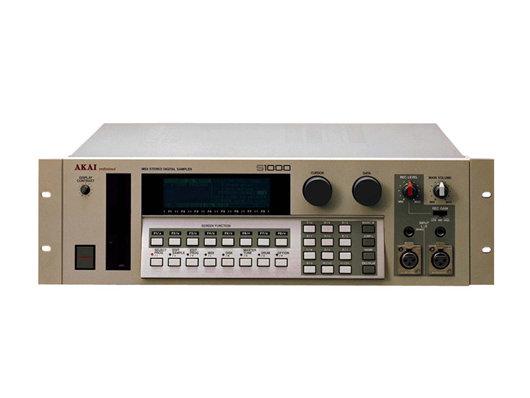
Akai S1000
RS: Was it all hardware based or was there any software controlling this setup?
PS: Oh yeah. I was running the backing tracks from Logic 4 I believe... yes, it was Logic 4 because we were also running some audio tracks. I was running upwards of 16 tracks of audio on Logic from a Mac PowerBook and driving a whole bunch of MIDI stuff at the same time. I was also the first one to ever use a Mackie D8B on the road. The reason I specified that for the rig were because there were so many synthesizers and the levels from one song to another were going to be all over the place, so rather than programming MIDI volume commands for each synth, I thought it'd be a lot easier to be able to move a physical fader to control the level of the synth outputs for each song. So I had the playback for all these synths and the D8B to mix the song and I would save the mix in a snapshot.
On top of playing back all the synth and sampler parts I was also sending program changes to the D8B - it had motorized faders so - from song to song it would switch the mix. And having an actual mixer to control levels made it really easy to make level adjustments during rehearsals and sound checks. It was a pretty extensive rig!
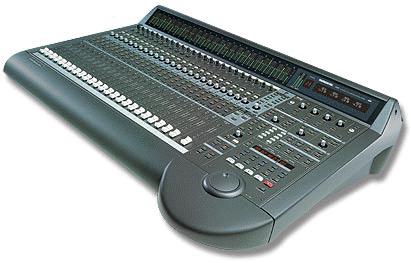
Mackie D8B
RS: Wow... sounds very intense! So do you still do any touring now?
PS: No, I stopped touring in 2000 at the end of the Nightlife tour because I really wanted to focus on my own music for a while. For many, many years I had been basically working on everyone else's music. And it's not like I regret that, but there's only 25 hours in a day I think? (laughs) But that wasn't enough to give me time to focus on my own creativity. So my hours were filled up with me working on other people's music, or recuperating from working on other people's music.
RS: Recuperating?
PS: Yeah, a lot of my session work was for guys like David Morales, Frankie Knuckles, Shep Pettitbone, and many other DJ's turned remix producers. You know, keyboard players like myself and Eric Kupper had to do what we did in one day. Sometimes that meant taking a track, stripping it down to the vocals and building up a completely new arrangement from the bottom up. And there were a lot of technical issues to deal with too. Our sessions could be very, very long. So at the end of that tour I decided to take a break from everything and moved upstate [New York] with the intention of spending some time working on my own music and developing my own voice as a film score composer. So that's what I did for a bunch of years.
RS: So you mentioned using Logic 4 back on the Pet Shop Boys tour. When did you start your Logic journey? Which version did you start on?
PS: Well my progression of sequencing software was... something or another on Commodore 64 - and I can't for the life of me remember what that was! Moved up to Notator on Atari, which was the predecessor to the Logic we know today (made by the founders of eMagic). After that I went to Studio Vision when I finally decided to get a Mac. I always found it (Studio Vision) a little but clunky and always missed some of the facilities that Notator had on Atari, which was no slouch of a computer! I can't tell you how many records I made on the Atari.
Notator on the Atari - Logic's big brother!
But, then I got into Logic 2 or maybe Logic 3 and that was when Logic was MIDI only. There was no audio instr... well, what used to be called audio instruments... there was no audio period. It was a MIDI sequencer. So I guess I've been using Logic for about 13 or 14 years.
RS: Is Logic the main DAW you use or do experiment with or explore others, such as Pro Tools, Cubase or anything else?
PS: What are they? (laughs)
RS: OK! So what is it about Logic that keeps you hooked?
PS: I use Logic because it facilitates what I hear musically. It's extremely rare that I ever run into a situation with Logic where I find I can't do something I want it to do. So that's why I stick with Logic. It facilitates every possible musical impulse that I'd ever want to exercise.
RS: Great! So, you mentioned working for Korg as well. What areas were/are you involved in with them?
PS: Mainly sound design, that is, sound programming and occasionally consulting on the design of a new product. The first project I worked on goes back many many years, and it was sort of a knock-off of the DX7, called the DS8. That was an FM synth. At the time I had a reputation... I don't know how worthy my reputation was (laughs), but I had a reputation as a good FM programmer. After that they invited me to come to Japan to work on a new project. So I show up at Korg in Tokyo and they brought me into a room that had a circuit board kinda screwed down to a block of wood covered in aluminum foil, and on it there was a two-line LCD and a keyboard that was attached with a ribbon cable to the circuit board. They asked me for my input on the design of how the software worked and they made a lot of significant changes to it based on my input. Well, it turned out that that circuit board was the M1, which was the largest selling keyboard of all time. Then I went on to design sounds for that and a whole bunch of other Korg keyboards over the years including the WaveStation, Oasys and the O1W and the Kronos and a few others I'm probably forgetting about.
A Selection of MIDI Workstations from the MIDI 101 tutorial
RS: So, it's safe to say you're big into your MIDI gear then! Well, moving on... I'm excited because I've been privy to a few videos from your MIDI 101 course and it looks really fantastic and extremely funny too. I didn't know MIDI could be fun... let alone funny!
PS: Oh, Thank you! You know when SteveH asked me to do a tutorial on MIDI, the first thing I thought of was that I probably wouldn't want to watch a tutorial on MIDI myself because it would be like watching paint dry. I thought, well, how do you teach this? I came to the conclusion that the only way to teach this would be to have fun with it. And in the end I guess I ended up making a light comedy film... Or should I say, a light comedy animated film, to explain what MIDI is and what it does and share my enthusiasm for it.
A Selection of MIDI Hardware from the MIDI 101 Tutorial
RS: Who would you say that the MIDI 101 tutorial is squarely aimed at?
PS: I think MIDI 101 is aimed at anybody who wants to understand what MIDI is all about and use it in a way that will enhance their creativity, but they're not quite sure how to do that. I guess my philosophy is that the more you know about it, the less intimidating it becomes, and then you can understand the possibilities for how you can express yourself better by using or manipulating the information that's contained in the MIDI messages.
I've always looked at MIDI as... how can I say it... well, MIDI is a translation of your performance on a MIDI Controller. Then again, you don't have to actually physically perform everything. You can draw in a performance. You can draw in, say, a controller message that causes something in your sampler or synthesizer or plugin to change the sound in a really cool way. Or you can edit your recorded MIDI messages to get your part to sound a certain way. So I guess you could say that MIDI is all about being able to create music that sounds the way you wanna hear it.
MIDI Events explained using Logic
And as you know, I've been active on a bunch of forums over the years, and I've read all kinds of posts about people who've had various MIDI issues. And I had some of those situations in the back of my mind as I was making the tutorial. For example, an issue I've frequently read about is where someone has a workstation hooked up to a laptop, and when they play it back, the sound is cloudy and weird, and in the Event List of their DAW they see two of every note on the same MIDI Channel. That's something I talk about in the MIDI 101 tutorial - why that occurs and how to prevent it. So, a lot of what I talk about aren't just facts about what MIDI is. There's a lot of...
RS: Practical advice and practical work throughs?
PS: Yeah! And explanations of how to overcome various snags that people new to MIDI frequently encounter. I dunno - you can push buttons and change settings and hope that a problem will get corrected as a result but... if you really understand how it all works -- and it's not that hard to learn -- then you could take a much more methodical approach to everything from troubleshooting to gaining control on your controller to creating the musical gestures you want to hear. So, yes, I don't just say 'this is how it works' I give a lot of examples of how things work because I feel that anything less would be leaving people high and dry.
In other words, I don't think it's fair to teach people concepts and not show applications for them. So, there's a lot of application!
MIDI Clock Demystified
RS: Cool! I personally can't wait to see more of it. The videos that I've seen, thanks to your previews, are really excellent. I'm not going to spoil it for anyone following this interview but it's got to be checked out because the videos are so, so funny (and educational!!) I haven't seen something this funny since the old Monty Python sketches.
PS: Well thank you for the high compliment and I have to say that since I was a teenager I was influenced by Monty Python and the troops. At the same time I've always enjoyed the elegance of Ken Burns documentaries. I think of this tutorial as a film - telling a story about MIDI more rather than a bunch of individual videos. One thing leads to another. There's a story line. So in terms of style I guess I borrowed a little bit of both Ken Burns meets Terry Gilliam (laughs). So I think you'll be able to tell that I really enjoy MIDI and what it's all about and what you can do with it. I just wanted to share that feeling with people so they can make the most of their digital music rigs.
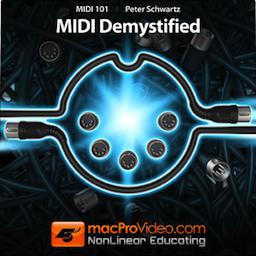
MIDI 101: MIDI Demystified by Peter Schwartz
RS: Nice. And of course this is software agnostic. So whether you're a Logic user, Pro Tools users or just have MIDI hardware, I'm assuming this is good for everyone, right?
PS: Yes! In fact I was telling a friend of mine about what I was doing and he asked if it was specific to Logic. I told him "no", and that the information in the video isn't specific to Mac or PC. I said that it's platform agnostic. And then he asked me if I had converted! (laughs) But no, the tutorial is truly platform agnostic. I do occasionally use Logic as a vehicle for demonstrating how certain things about MIDI work. But the tutorial is definitely not about how to use MIDI in Logic. It's about MIDI, period. I also explore MIDI setup with MPC's and similar devices, especially in the section on synchronization, and I talk about syncing a Pro Tools and Logic rig.
How MIDI works over Multiple Channels
MIDI is MIDI. If you want to call MIDI a language, the language does not change if you're on a PC or a Mac, so I would say, being as objective as I can, that if you're working in Sonar (on a PC) or Pro Tools (on a Mac) you'll get equally as much out of the tutorial because MIDI is MIDI and it's not about what platform you work on.
RS: Thanks! So, what do you do outside of your music production work to unwind and chill out?
PS: I hang out with my wife, play with my dogs. When the mood strikes me I'll break out my bassoon and see if I can still kind of play it. I've got all sorts of hobbies. My house is like a little mini museum. I'm either playing with my laboratory glassware collection or studying something obscure about early United States stamp production... then there'll be a leak in the roof and I'll have to go up and, you know, fix it! My life is very interesting outside of music... no shortage of amusements!
RS: Well, thank you very, very much Peter for sharing your time in this interview. Really appreciate it!
PS: My pleasure! Thanks for interviewing me! It's been a pleasure.
RS: Just so you all know (Peter being too modest to mention it!) He hangs out on the macProVideo.com Logic forums and you can read his tips and tutorial articles on the macProVideo Hub. There are a lot of articles on Logic and the Score Editor. And of course the MIDI 101 is available exclusively at macProVideo.com. Check it out!



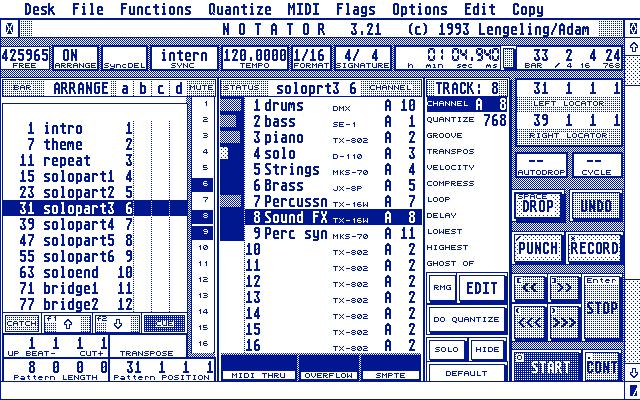
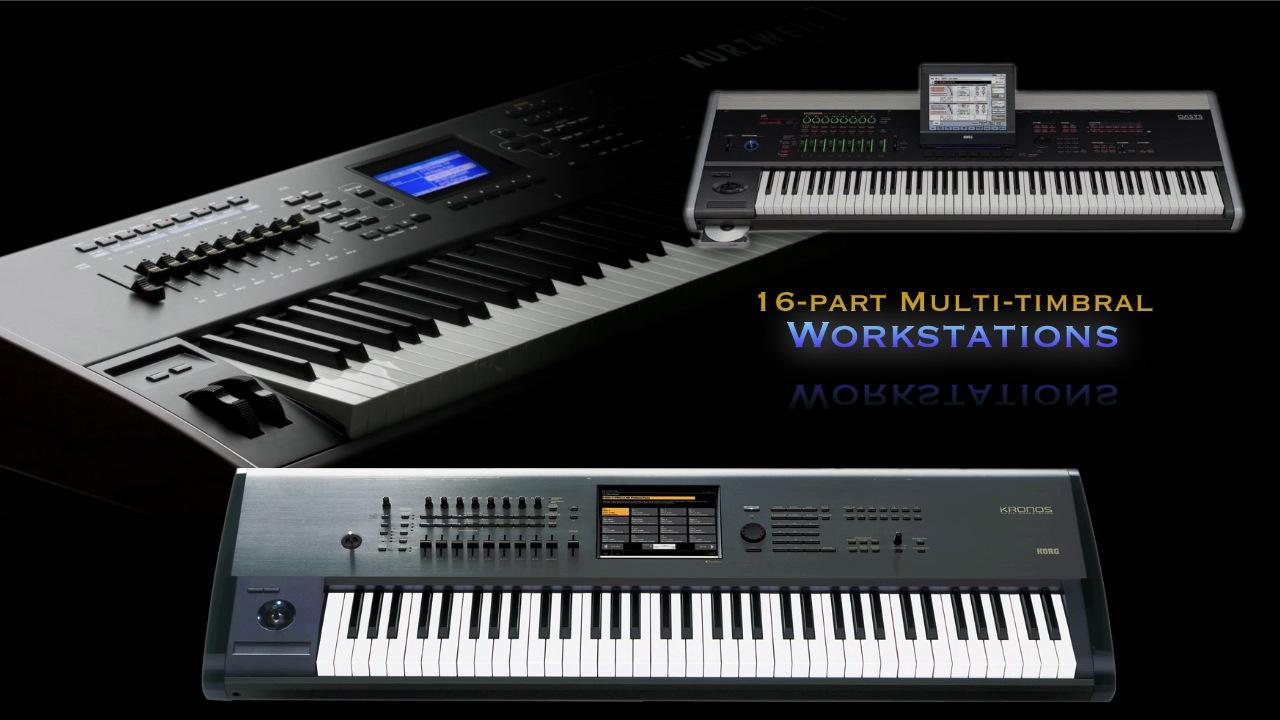
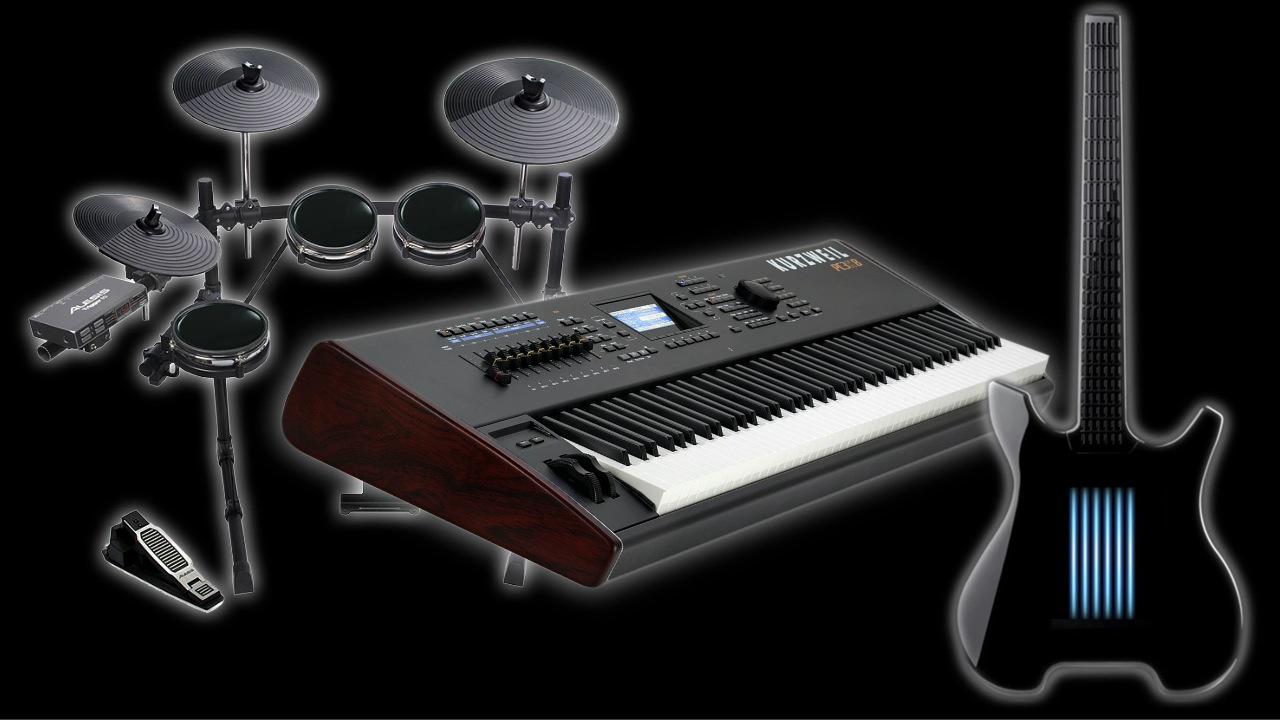

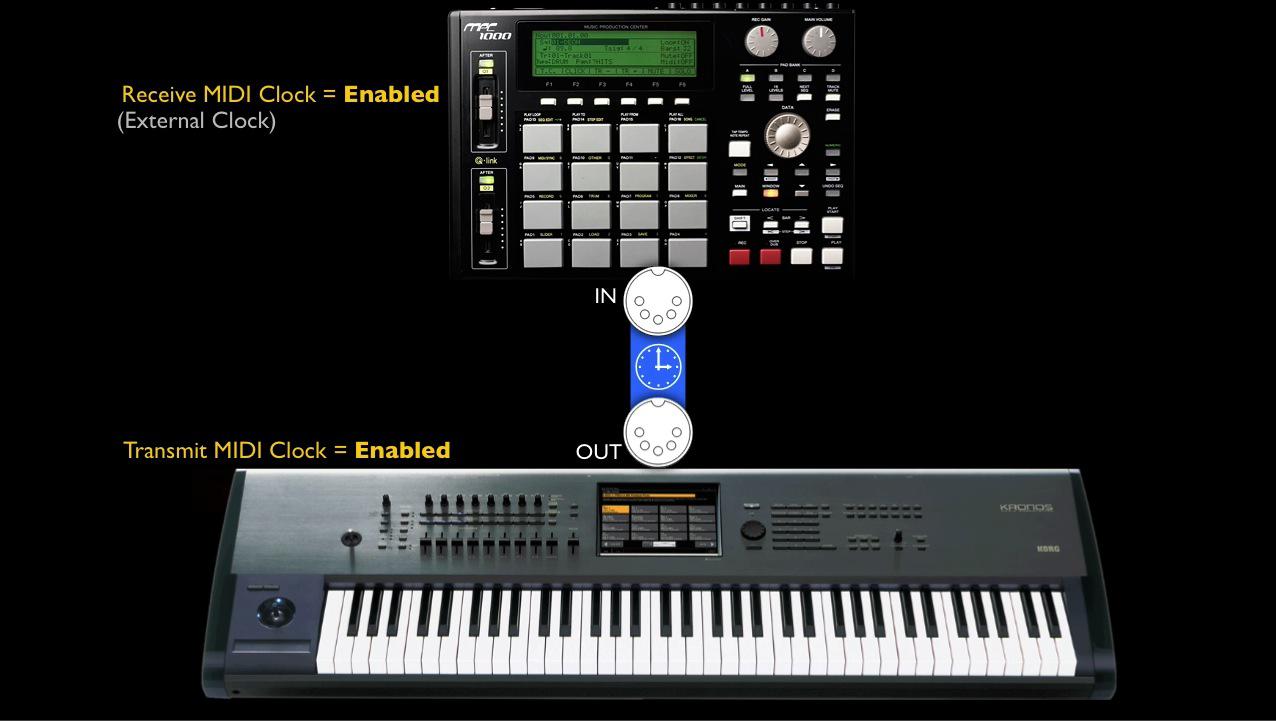
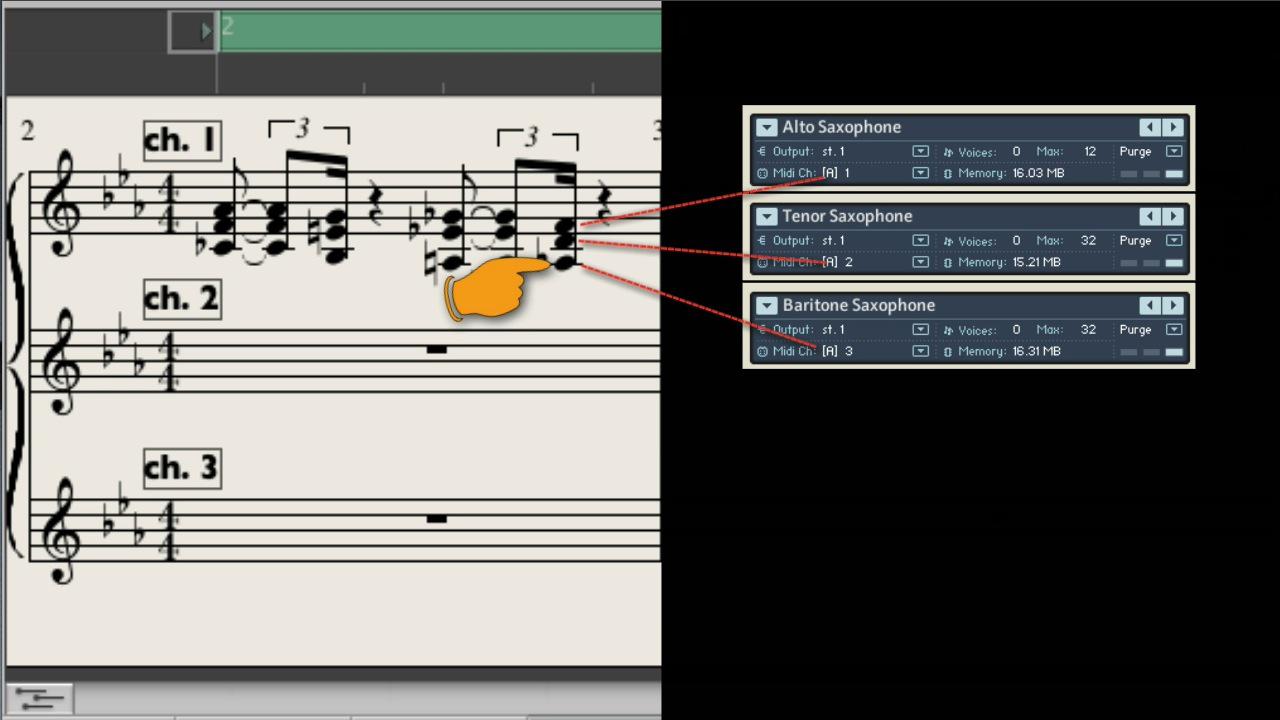

 © 2024 Ask.Audio
A NonLinear Educating Company
© 2024 Ask.Audio
A NonLinear Educating Company
Discussion
Want to join the discussion?
Create an account or login to get started!